Heroes: Baz Luhrmann
Director Baz Luhrmann gives an inside look into the summers blockbuster film…his latest masterpiece, Elvis
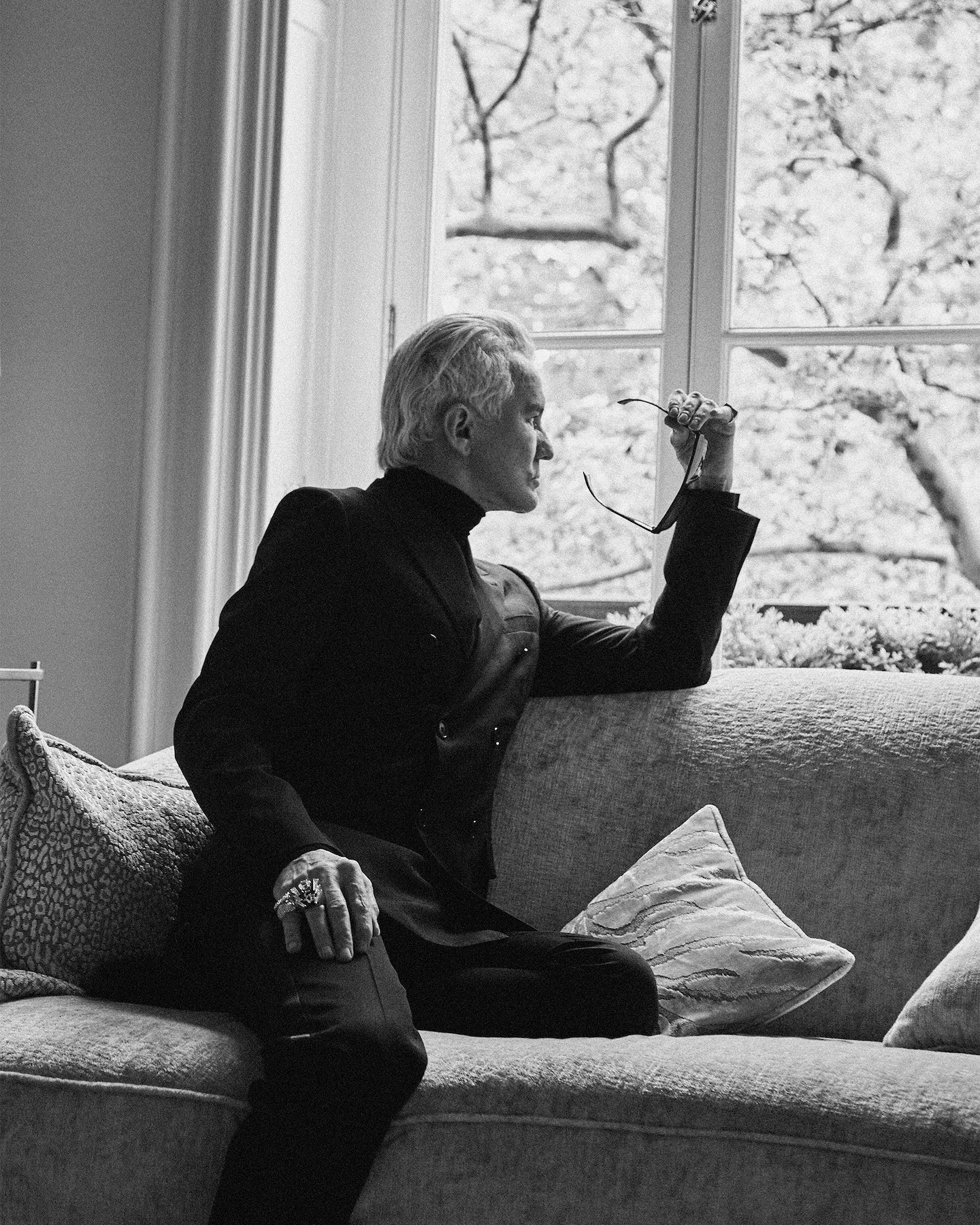
The director-extraordinaire connects with V Magazine and VMAN Editor-in-Chief, Stephen Gan, to discuss Austin Butler channeling the ethos of the King of Rock N’ Roll for his breakout role in Elvis and how the highly anticipated film came to be.

See below to read the full interview:
Baz Luhrmann: You know what’s crazy? I’m driving past Graceland (the home of Elvis Presley) right now in Memphis, Tennessee.
Stephen Gan: Oh, wow! How beautiful. After watching your screening, I was blown away, Baz. To have that kind of attention to detail, ability to story-tell, and then work on the music direction tapping amazing musicians like Doja Cat…It’s so impressive. You do it to perfection on so many levels. So how did you come up with it?
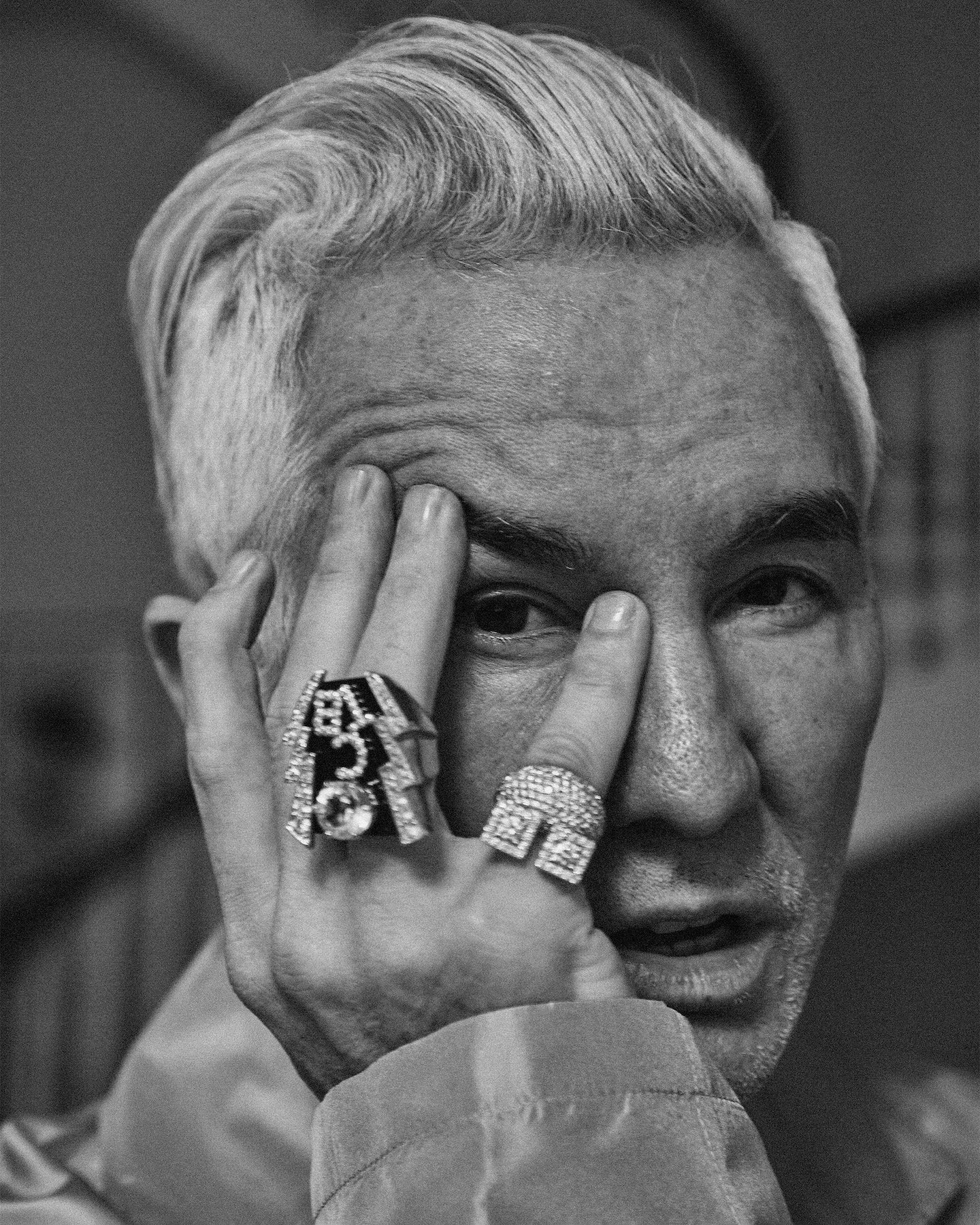
BL: I always had an affection for Elvis when I was a kid but the first time I came to Graceland was five years ago on this day to start research. Once I realized that Colonel Tom Parker (Elvis’ manager, played by Tom Hanks) was this toxic, “J. Edgar Hoover” character, who also has this dark secret, I thought, “Oh, this makes it like Amadeus.” If the Colonel is about the sell, the bluster, and the branding, then Elvis is about the pure soul. It’s the snowman and the showman, and Elvis is the showman. When I came to this realization, I thought, “That’s my way in. This has a purpose.”
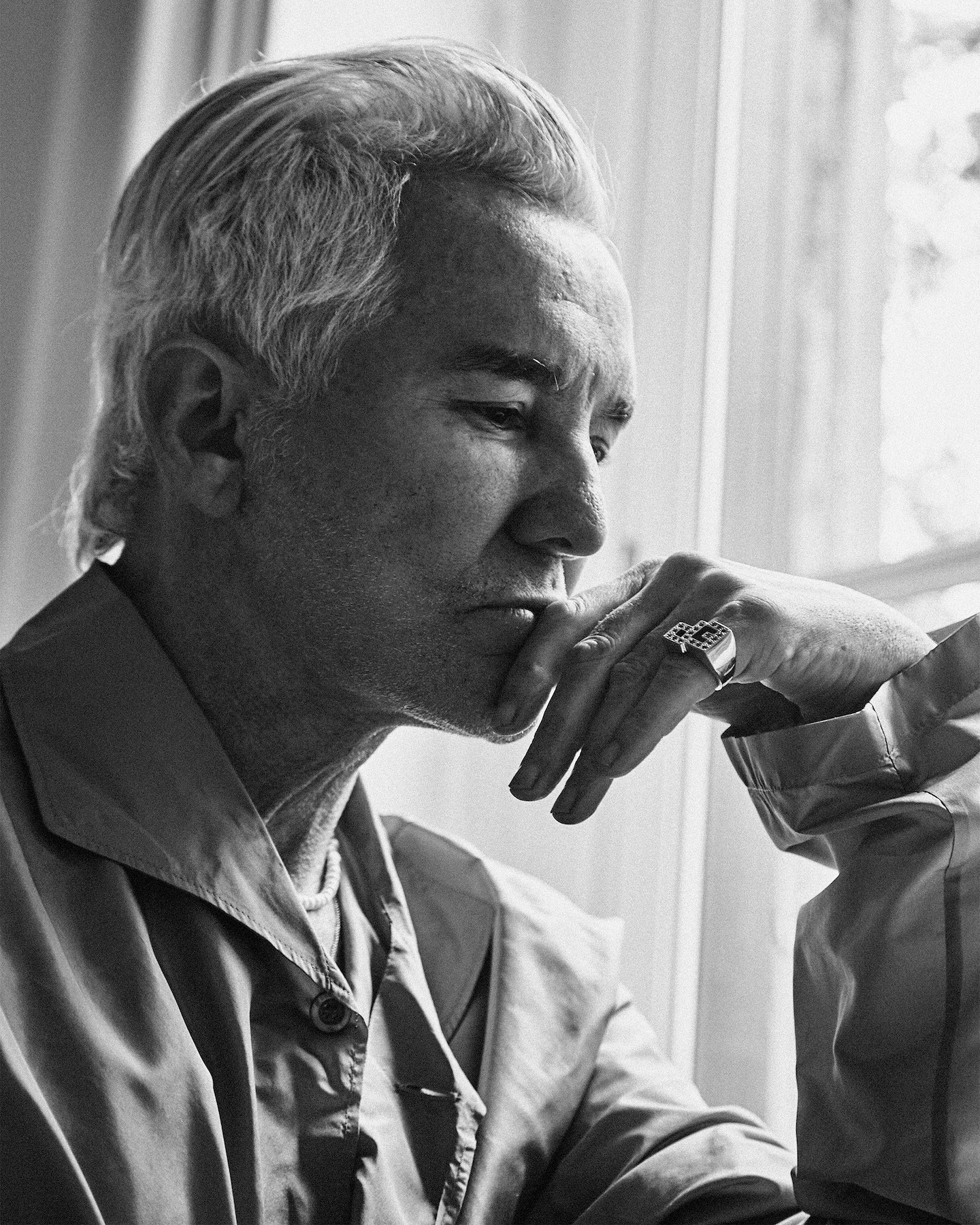
SG: How did COVID affect the development of Elvis?
BL: There was a moment when it looked like the film wouldn’t happen. I remember going to Austin and having to tell him that the film wouldn’t happen. Instead of Austin just letting go, he doubled down on being Elvis. I thought, “it means too much to him, maybe it means too much to everyone.” We’ve come through, and whether COVID is over or not, the world is changing and somehow. So having something to believe in and having something to make, gives you energy and a life force.
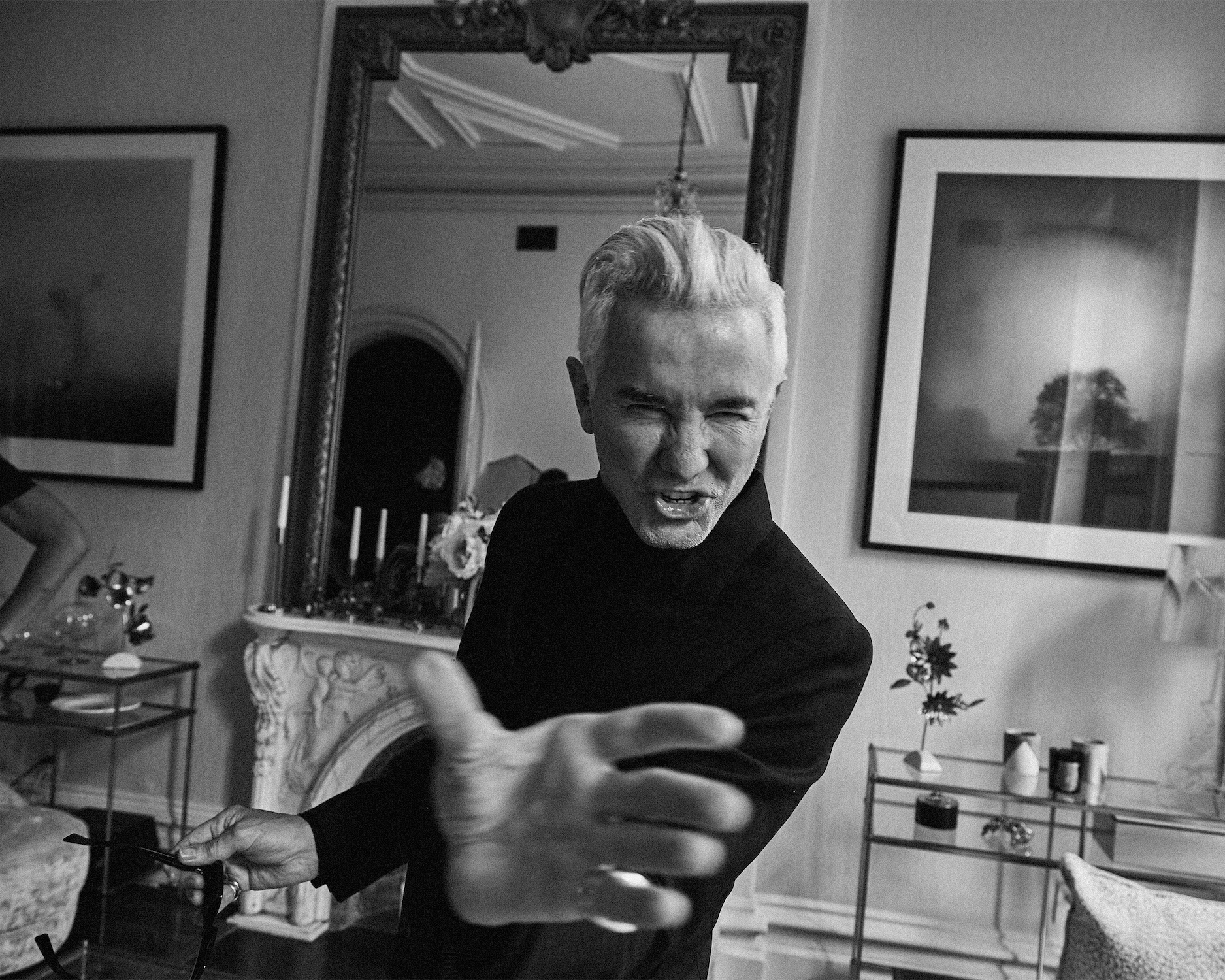
SG: So many kids will remember the Summer of 2022 as being the summer of Elvis. The world’s learning to live again and the film feels like a celebration. People keep saying “divine timing, it’ll happen at the right time.” This timing in the world and the launch, it feels so perfect.
BL: This story, it’s both sore and beautiful, tragic as well, but it leaves hope. I felt like we needed to have a story that leaves hope, you know? I didn’t have divine timing, but I did feel like we needed a show like this.
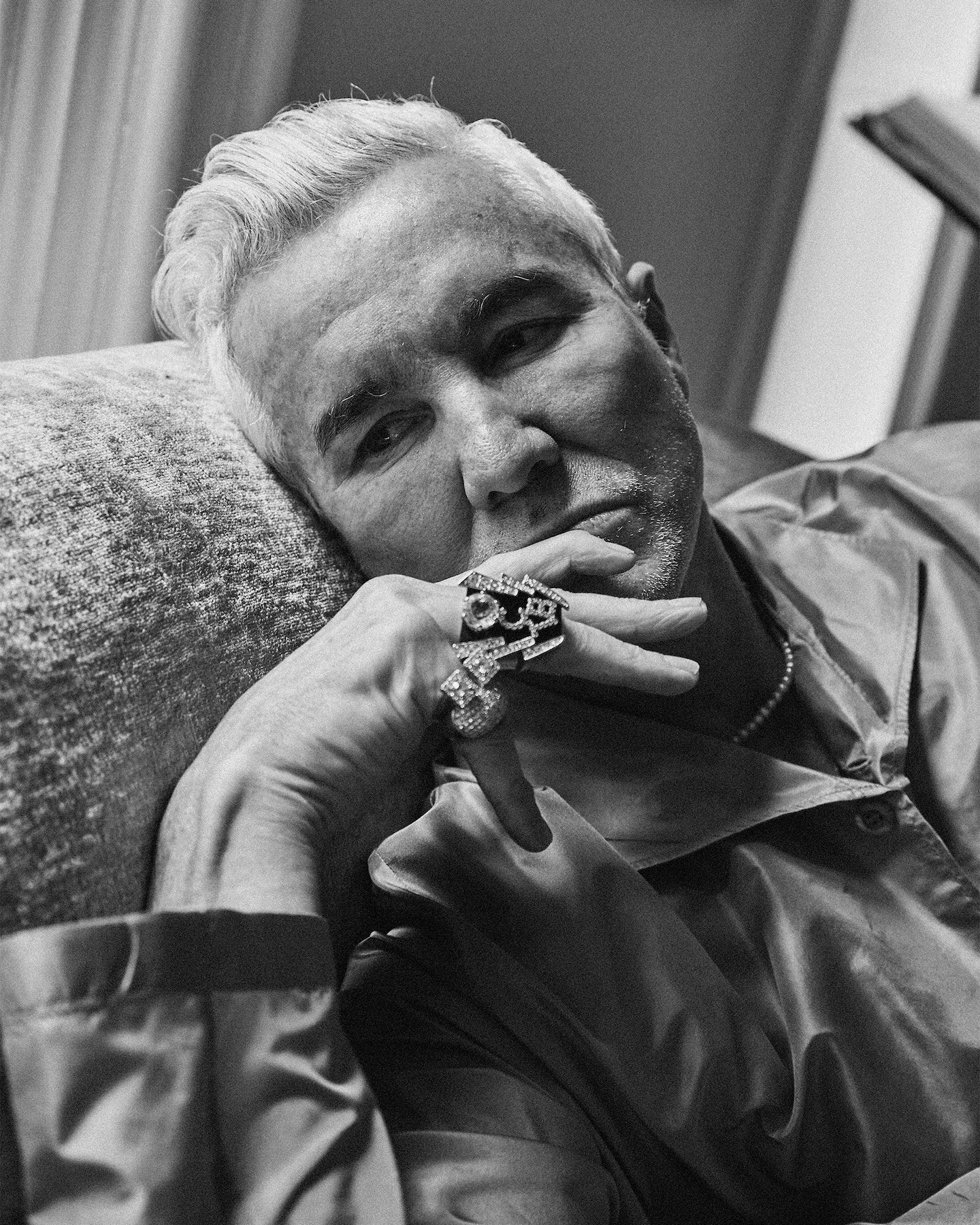
SG: What did the process of casting Austin look like?
BL: There has been no process for casting a role like Austin’s process. We talk about divine timing, this was it. We now know, he lost his mother at the same time as Elvis; he found this role. From the moment he walked into my life, he was fusing his soul with Elvis’s. This wasn’t a method acting thing, this was something else. I can’t put my finger on it, his singular focus was to humanize Elvis: not Elvis the Halloween costume, not Elvis the icon, but this man and his spirit. I think the truth is that Austin is spiritually similar to Elvis, you know? It is unusual, very unusual. Maybe a once in a lifetime journey between a director and an actor, very unique.
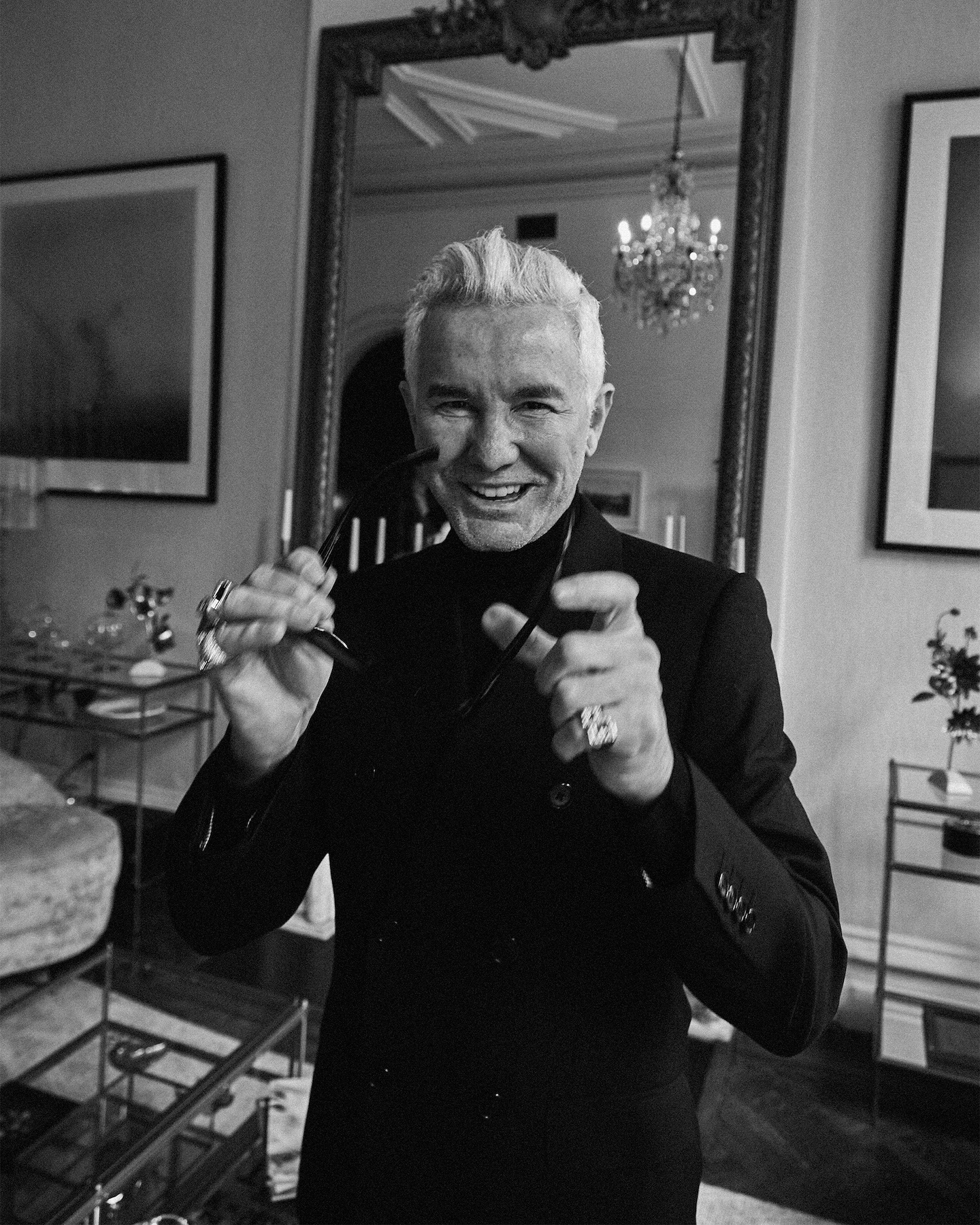
SG: We can’t talk about the film without talking about the music, which I know is a very big part of the film. How, do these collaborations happen? I felt like I walked into your place for your portrait being shot by Eric [Hart] a few months ago, and you were playing her track. So it felt like everywhere you turn, it was a Doja and Baz moment from Coachella, to the [Elle Magazine] event a few days ago. You two getting together was a real surprise to me, but a good surprise. So how did that come about?
BL: Doja, along with her producer, Yeti, was the one of ones, who just got it right away. This is before she was blowing up; she hadn’t won the Grammy, she hadn’t done Coachella. And honestly, she could have gone anywhere, so I really appreciate her. And I stand by her as an artist, her commitment; she’s a hard working gal, you know?
SG: What was that process like curating the music for the film, and how does it all go hand and hand with the amazing musicians you tapped?
BL: In the movie, you hear classic Elvis…you hear Elvis’ voice, and you hear a lot of Austin singing Elvis. And a lot of people still don’t understand that it’s actually Austin—I had to post something on TikTok to prove it. But in my previous films, like in the same way that Jay-Z and I worked on Great Gatsby, it’s translating jazz. Not what it was, but what it felt like…you know? So sometimes in the movie, when Big Mama Thornton sings “You Ain’t Nothing But a Hound Dog,” she’s basically saying, If you go out and expletive and scratch on my door and expletive, you can expletive off outta here. Now for the younger audience, it doesn’t matter what you do. They’re not gonna understand that. So they needed someone to translate it in terms of rap. And I’m not saying that Doja is Big Momma Thornton.
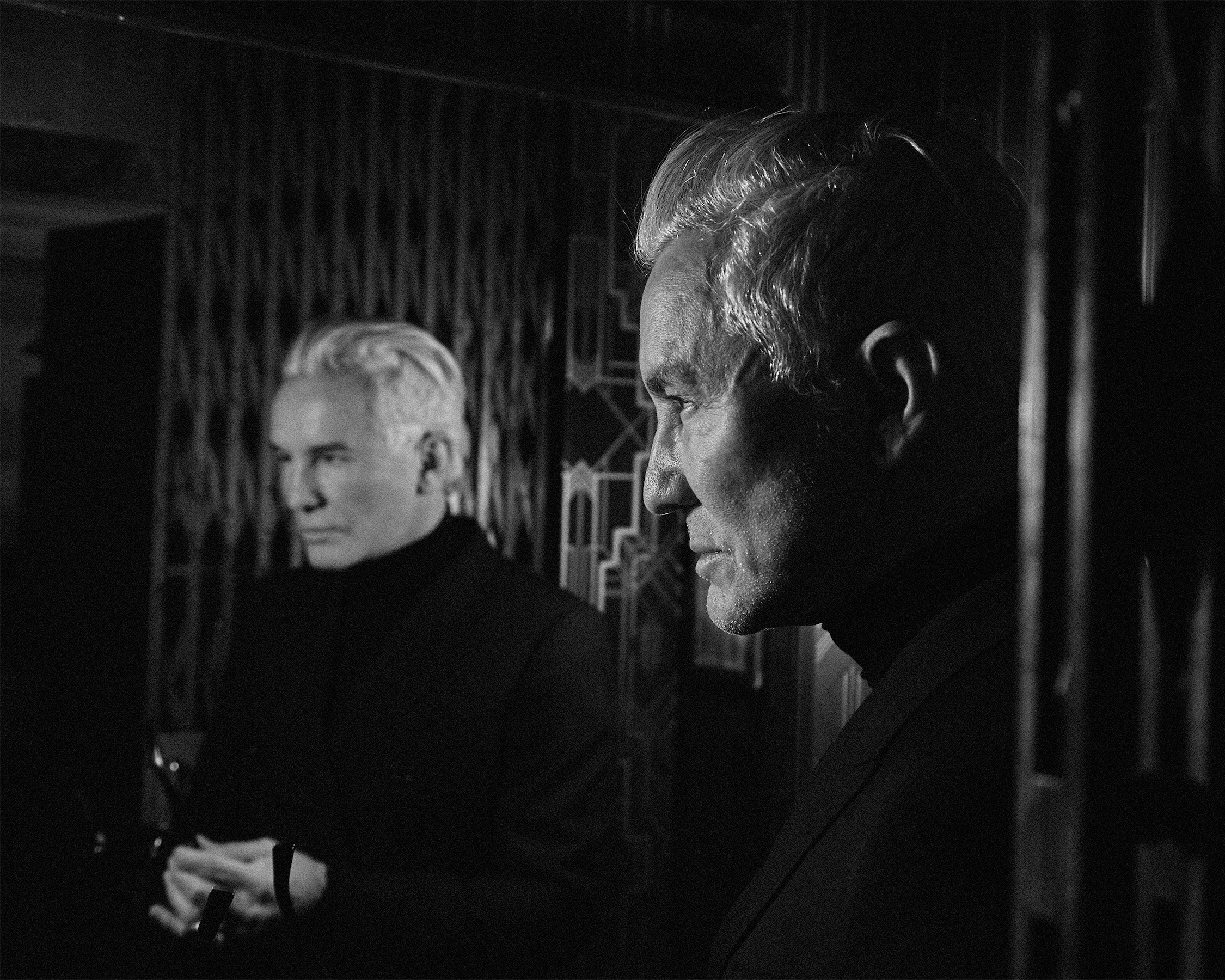
SG: That’s so interesting, the way that you thought to have it modernized for this generation’s consumption.
BL: Doja is translating the language of that classic song, that’s what she’s saying. A younger audience goes, “Right, I get it.” It’s pretty edgy street music, because they know Doja speaks in a language that is who she is. It’s not filtered. And so we thought, “oh, that would be a great idea.” And I asked RCA and they put me in touch with Yeti—and they’re like brother and sister (Yeti and Doja)…they’ve been working together since the beginning. So I explained it to Yeti and Yeti explained it to Doja. She got on the phone with me and within five seconds she said “I get it. It’s basically, men ain’t shit.” And that was when I thought this is just exactly what I was looking for. So that’s how it happened!
SG: So did you start out with a wish-list of all the artists that inspire you at this moment?
BL: There’s lots of Easter eggs in the credits, it’s like when you watch the end credits of superhero movies…they have Easter eggs. You know? Like names you wouldn’t expect to see. And I really thought, to understand Elvis growing up as he did at one point in the Black community and his home life and journey, the only other person I think who really had that experience in a contemporary way is Eminem. Now I don’t know Eminem very well so I wrote to him. He saw the film, and he immediately connected with it. And therefore he wrote a song that explains about his relationship with Elvis. So it’s the same with Maneskin, I just thought, “Oh, Maneskin, they’re rooted in of the moment, young, glam rock.” And they wanted to interpret the song “If I Can Dream.” So partially, for me, it was going through and saying “Who would do that work the best?” It’s like casting. I cast musical guest artists like I would actors. Because you know me, the music is as important as the script, as the visual.
Elvis hits theaters June 24th, 2022
Discover More

